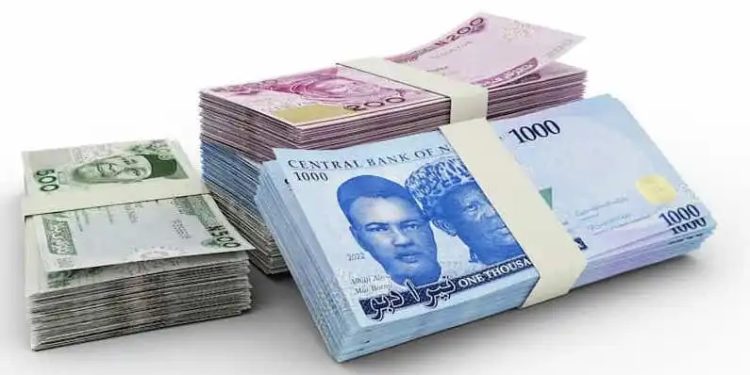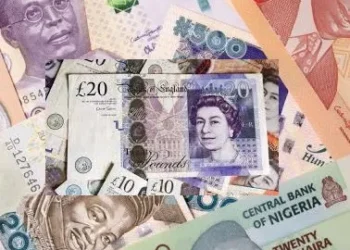The Naira has depreciated to N1,580 per dollar in the parallel market, marking its lowest value in five weeks, as foreign exchange (forex) outflows increase amid heightened global trade tensions. The local currency also declined in the official market, falling from N1,499 to N1,548 per dollar, reflecting a week-on-week loss of N6.
Impact of Global Trade Uncertainty
The recent decline in the Naira’s value has been linked to the ongoing global trade war, particularly the tariff dispute between the United States and key economic partners such as China, Mexico, Canada, and the European Union. The escalation of trade restrictions, including the 25% tariff imposed by the U.S. on metal imports, has fueled uncertainty in global markets, leading investors to seek safer assets.
This volatility has significantly impacted the Nigerian economy, with foreign investors withdrawing capital from the country. Market reports show that foreign portfolio investors have been offloading their Nigerian assets—including bonds, treasury bills, and equities—to convert their holdings into U.S. dollars. The Nigeria stock market (NGX Exchange) recorded a second consecutive week of decline, dropping 0.5%, while the MSCI World Index, which tracks stocks from 23 developed countries, fell by 2.1% week-on-week.
CBN’s Forex Market Intervention
To curb the Naira’s decline, the Central Bank of Nigeria (CBN) intervened in the foreign exchange market by selling $500 million to boost dollar liquidity. However, the impact of this intervention was limited, as sustained demand for forex continued to place pressure on the local currency.
A senior banking executive explained that panic buying contributed to the naira’s depreciation:
“Foreign investors exiting the Nigerian market have been aggressively purchasing dollars, which, in turn, has driven up demand and worsened the currency’s depreciation.”
Forex Market Trends and Future Outlook
The depreciation trend has been worsened by limited dollar supply from banks to Bureaux De Change (BDC) operators. A BDC executive revealed that banks had stopped selling the $25,000 weekly forex allocation, citing a review of rates and dollar shortages.
Parallel market traders have also noted a sharp decline in forex availability. One trader, Mallam Tijani Yusuf, confirmed that the exchange rate climbed to N1,600 per dollar, compared to N1,400–N1,500 just two weeks ago. Others speculate that if supply shortages persist, the Naira could further weaken to N1,680–N1,700 per dollar.
Calls for CBN’s Further Intervention
Stakeholders in the forex market, including Aminu Gwadabe, President of the Association of Bureaux De Change Operators of Nigeria (ABCON), have emphasized the need for sustained CBN intervention to stabilize the naira. He noted that:
“The continued depreciation of the Naira is concerning. There is an urgent need for increased dollar supply to prevent further volatility in the market.”
As economic uncertainty persists, all eyes remain on the CBN’s next policy steps and the trajectory of global trade tensions, which will likely continue to shape Nigeria’s forex market in the coming weeks.










